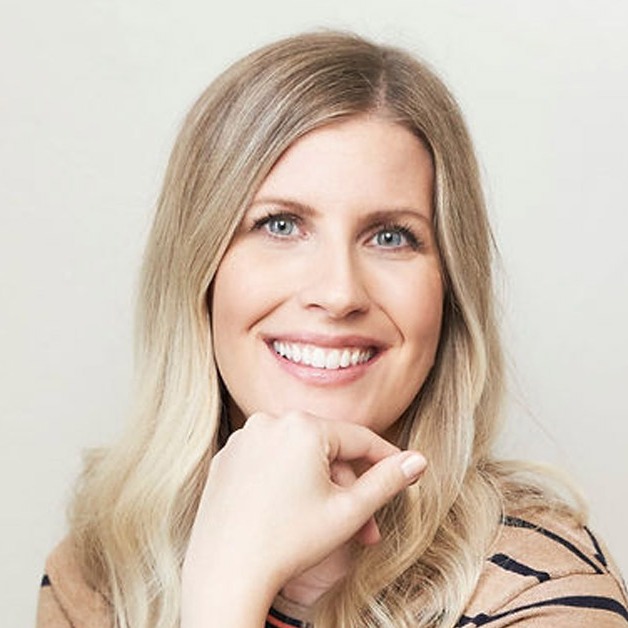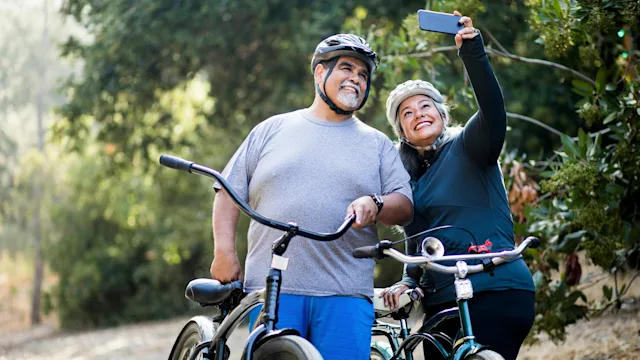Key takeaways:
Louise Green is a personal trainer who wants to change the dated standards of fitness culture.
Her approach is to help women look beyond the physical and aesthetic aspects of fitness. She helps others understand the social and cultural challenges they face.
Her goal is to create a more accepting climate of unlimited possibility for every “body.”
After years of putting her feet to the pavement, avid runner Louise Green decided to put pen to paper. In 2016, she wrote the book “Big Fit Girl” and launched a brand with the same name. Back then, Louise says, the book and what it represented were considered provocative and groundbreaking.
“At that time, there weren’t really any other fitness books on the bookshelf where you would see a larger body on the cover and the words ‘big’ and ‘fit,’” she says.
For a time, Louise remembers being always aware that her body was bigger than others. But things changed when she was about 30. She joined a running club. Her coach offered a philosophy of fitness that Louise had never encountered.
“She wasn’t screaming out that bikini season is coming, or motivating us by shame,” Louise recalls. “She really talked to us like we were athletes.”
This coach didn’t mention body size, calories, or anything related to diet culture. This was something Louise considered a somewhat shocking concept.
“She was the one who made me realize that I didn’t have to starve myself, or be white-knuckling it to my next meal and tracking every single thing that goes into my mouth,” Louise says. “I could just be an athlete.”
Louise’s 12 weeks of training with the running coach proved to be life-changing. It inspired her to create her own fitness program for women with larger bodies. That effort evolved into her book and brand.
Today, Louise is a personal trainer, global fitness coach, and social media influencer, changing the standards of fitness culture.
Exercise shouldn’t be punishing
As a child, Louise enjoyed physical activities such as Irish dancing and soccer. As an adult, she turned to Zumba classes and running. As a coach, she’s aware that, for some people, movement and exercise come with bad memories attached.
Read more like this
Explore these related articles, suggested for readers like you.
She advises others to reframe what movement looks like to activities that bring joy. For her, it’s activities like gardening, ballroom dancing, swimming, or yoga.


Fitness creates widespread confidence
Louise’s experience has taught her that regular movement is the goal for people in larger bodies. It contributes to better sleep and builds strength, agility, and vitality. But her favorite benefit of movement is confidence that goes far beyond the body.
Maintaining that confidence can be difficult at times, Louise says. She struggled when gyms closed during the pandemic and hired a personal trainer to get back into a workout routine. A more affordable option, she says, are free apps, such as the Nike Training Club app, that offer guided exercises.
You can be fit and fat
Her goal is to create a social climate of unlimited possibility for every “body.”
“The majority of people believe that thin equals healthy — and not only that, but [that] thin equals being more beautiful and more valuable. The reason there’s fat phobia is because being fat is so devalued,” she says.
“There are so many stereotypes attached to being larger, like: ‘You're lazy. You're gross. You're underdisciplined. You don't care.’ We're still dealing with a medical industry that believes that your fatness is your fault.”
She says fitness is about more than numbers on the scale.
As a social media influencer, she aims to showcase a healthy larger body to a global audience. This helps underscore the reality of being fit and fat, together.
“How often do you see a fat woman in fitness advertising? In the marketing message that invites people into fitness spaces, we rarely see a larger body,” Louise says.
That’s why she’s creating a community that will dismantle that message and create a more inclusive one.

Why trust our experts?




















